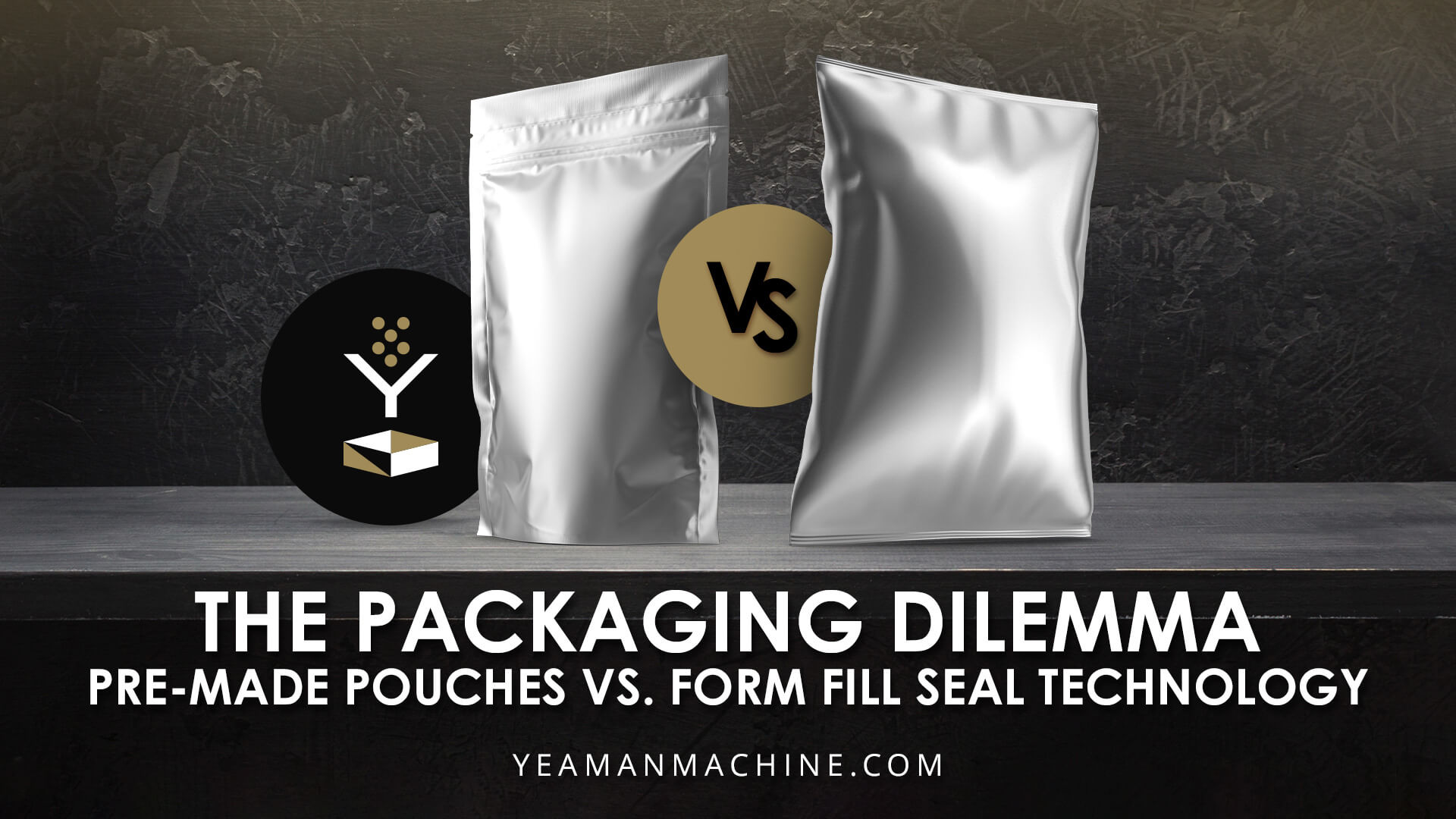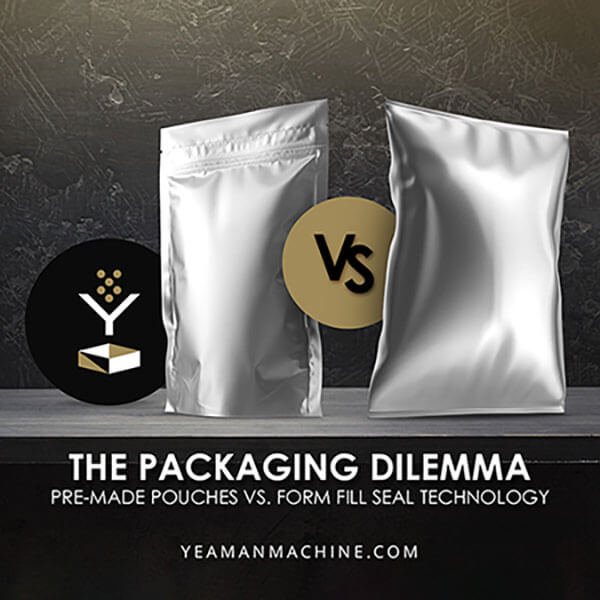In the dynamic landscape of packaging, the debate between pre-made pouches and form-fill-seal (FFS) technology has long been a topic of discussion among industry professionals. The real question, especially for small companies or startups, is whether to dive straight into the complexity of FFS or start with the more straightforward pre-made pouches. Let's explore our conclusions after considering critical factors such as quality standards, costs, speed, flexibility, expertise required, and downtime.
Starting Small: The Case for Pre-Made Pouches
For companies transitioning from rigid to flexible packaging, pre-made pouches offer a smoother entry into the market. The advantage lies in having a pouch supplier conduct quality checks before delivery, relieving companies from the responsibility of managing quality aspects associated with pouch manufacturing. This simplicity makes pre-made pouches an ideal starting point, with the option to graduate to FFS technology as production volumes increase.

Quality Assurance and Expertise: Pre-Made Pouches Shine
Pre-made pouches shine in terms of quality assurance. The pouch supplier takes on the responsibility of quality checks, providing a reliable and consistent packaging solution. In contrast, FFS technology requires companies to manage all quality aspects, making expertise in both pouch manufacturing and machine operation essential. The learning curve for FFS equipment is steeper, emphasizing the advantage of pre-made pouches for those with limited expertise.
Cost Considerations and Flexibility: The Pre-Made Advantage
The initial equipment cost for handling pre-made pouches is notably lower compared to FFS counterparts. Although FFS machines boast higher filling speeds, pre-made pouches compensate with lower scrap rates. Additionally, pre-made pouches offer a wider range of options in terms of shapes, fitment types, and placements, providing unmatched flexibility in packaging design.
FFS Technology: Speed vs. Practicality
FFS technology suits companies seeking very high speeds and consistent product runs. However, drawbacks emerge when dealing with frequent product changes. The time-consuming film changeover can be a significant bottleneck for companies with diverse product lines. Moreover, the vulnerability of FFS bags to splitting upon impact and the potential for sweating inside the bag, leading to mold and other issues, highlight the practical challenges associated with this technology.
Pre-Made Pouch Flexibility: Tailoring Packaging Solutions
The standout feature of pre-made pouches is their unmatched flexibility. Companies can choose from a variety of pouch types, including stand-up pouches, sealed pouches, windowed pouches, zipper pouches, and more. Material finishes further expand the options, ranging from metalized and clear pouches to kraft paper, rice paper, foil, and matte/satin pouches.
Ease of Handling and Changeovers: Pre-Made Pouches Take the Lead
When it comes to packaging equipment, pre-made pouches offer manual or automatic loading options, providing ease of handling. Changeovers to different pouch sizes and formats are swift, taking just a few seconds, and contributing to increased operational efficiency.
In conclusion, the choice between pre-made pouches and FFS technology depends on a company's specific needs, expertise, and long-term goals. While FFS may be ideal for high-speed, consistent production runs, pre-made pouches provide a practical and flexible solution, particularly for those starting small or navigating a diverse product range. The options are nuanced, and finding the right fit involves weighing the advantages and disadvantages to make an informed decision for sustained success.
Yeaman's Pre-Made Pouch Packaging Machine represents engineering excellence, meeting the intricate demands of contemporary packaging. Its precision, versatility, and wide options for customization position it as the optimal solution for businesses in search of a dependable and scalable packaging solution.


